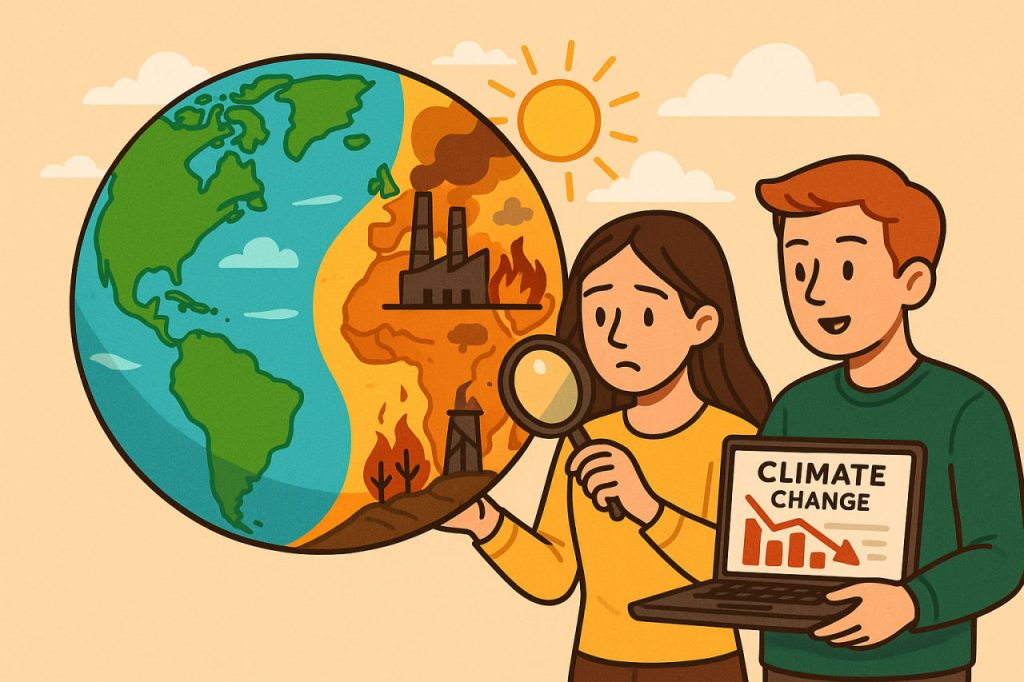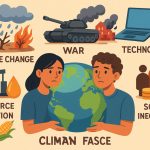Climate change is one of the most urgent challenges humanity faces in the 21st century. Rising temperatures, extreme weather events, melting glaciers, and ocean acidification affect ecosystems, economies, and human health worldwide. Staying informed about the climate situation is not just about science—it is about understanding risks, making responsible decisions, and shaping a sustainable future.
Global Impacts of Climate Change
- Extreme weather – More frequent and intense storms, floods, wildfires, and heatwaves.
- Melting ice and rising seas – Polar glaciers and ice sheets are disappearing, causing higher sea levels and threatening coastal cities.
- Biodiversity loss – Many animal and plant species are at risk due to shifting habitats.
- Human health risks – Heat stress, spread of tropical diseases, and poor air quality affect millions.
- Economic consequences – Agriculture, infrastructure, and insurance systems suffer huge financial losses.
Why Being Informed Matters
- Personal safety – Knowledge about risks helps people prepare for floods, heatwaves, or wildfires.
- Responsible choices – Understanding the climate crisis encourages eco-friendly habits, such as reducing plastic use, saving energy, and supporting renewable energy.
- Global awareness – Informed citizens can pressure governments and businesses to act responsibly.
- Future generations – Climate education helps ensure a livable planet for children and grandchildren.
- Fighting misinformation – Accurate knowledge helps resist denial and false claims about climate change.
How to Stay Informed
- Follow reliable scientific organizations such as IPCC, NASA, or UNEP.
- Track local weather and environmental news.
- Participate in educational programs and community initiatives.
- Support climate-friendly policies and projects.
Conclusion
Being informed about the climate situation is essential for both individual survival and collective action. Knowledge helps us adapt to changes, reduce environmental impact, and demand solutions from leaders. The climate crisis affects everyone—so awareness today means resilience tomorrow.
Glossary
- Climate change – long-term shifts in temperature, weather, and ecosystems caused largely by human activity.
- Biodiversity – the variety of living organisms on Earth.
- IPCC – Intergovernmental Panel on Climate Change, a leading scientific body on climate research.
- Renewable energy – energy from natural sources like the Sun, wind, and water.
- Resilience – the ability to withstand and recover from challenges.


